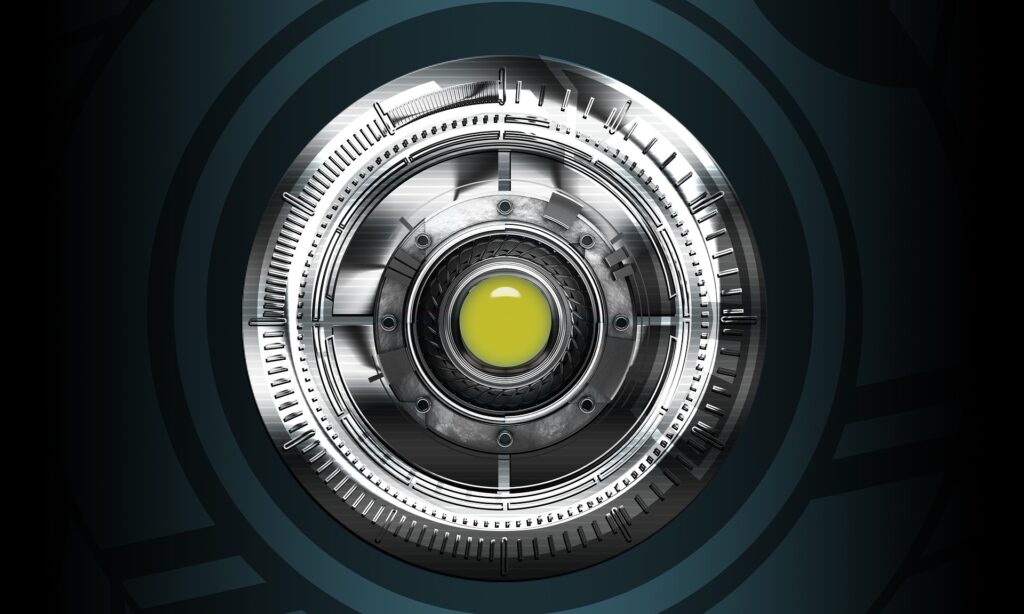Overview
We can all agree that technology has advanced faster than anticipated and this is evident in all sectors. The invention of the internet in 1983 triggered a rapid advancement in technology. A key factor that pushes humankind to accelerate the development of technology is the need to enhance the efficiency of task execution and automate as many tasks as possible. As long as humans continue to learn, they will never stop inventing. Every new invention or technological advancement provides a learning curve that allows for further inventions. For instance, the first USB flash drive was invented by Trek Technology, a Singaporean Tech company in 2000 and it had a storage capacity of 8 megabytes (MB). Currently, DataTraveler HyperX Predator 3.0 is the world’s largest-capacity flash drive with a capacity of 1 terabyte (TB). This is a clear indication of how humans continue to improve existing technologies through learning. It is simply a ‘learn-invent’ repeat process.
While some would argue that rapid advancement poses a survival threat to the human race, it is impossible to quantify the threat. Besides, we can make technology work for us rather than against us.A major downturn associated with rapid changes in technology is that existing skills and knowledge may be rendered obsolete. Therefore, it is advisable to keep up with these trends. By constantly learning about these changes, you become adaptable to changes in your career and other affected fields.
In this article, we will delve into top technology trends for 2022.
1. Artificial Intelligence (AI) and Machine Learning
AI has received a lot of buzz in the last 10 years and it continues to be one of the most trending topics in the tech community due to its noteworthy impacts on our lives. AI is already popular for its dominance in areas like image and speech recognition, smartphone and personal assistants, and geospatial systems.
AI is expected to play a pivotal role in the analysis of complex data to provide insights for predicting patterns to facilitate in-demand decision-making in many sectors including hospitals and businesses. Workers and players in these areas will use AI to make decisions on resource utilization, identify shifts in consumer behavior, and increase revenue.
The AI market is expected to grow to a $190 billion industry by 2025 with global spending on AI products surpassing $57 billion in 2022. The spread of this technology to many sectors will lead to the creation of new jobs in programming, information security, data science, AI is known for some of the highest-paying jobs in the world with machine learning engineers earning $125,000 and AI architects making $145,000 annually.
Machine learning is a branch of artificial intelligence that allows software applications to learn from past data without being explicitly programmed to do so. The deployment of machine learning in several industries has led to increased demand for AI professionals. Forrester predicts that AI, machine learning, and automation will cumulatively account for 9 percent of jobs in the United States by 2025.
Learning AI and machine learning sets you up for jobs like;
● AI Research Scientist
● AI Engineer
● Machine Learning Engineer
● AI Architect

2. Robotic Process Automation (RPA)
Akin to AI, robotic process automation seeks to automate task execution. RPA refers to the use of software systems to automate corporate processes such as data analysis and processing transactions. Opponents of robotics believe that robotics is a threat to the livelihoods of many people as it will take over most jobs. Well, robotics will indeed take over several jobs, however, it is important to note that this technology will create many jobs.
Mastering RPA will help you secure high paying jobs like:
● RPA Developer
● RPA Analyst
● RPA Architect
3. Edge Computing
Cloud computing is already a mainstream technology with millions of users across the globe. The most popular cloud computing services are Amazon Web Services (AWS), Microsoft Azure, and Google Cloud Platform. As volumes of data exchanged in these platforms continue to increase, demerits of cloud computing have been identified. Edge computing is primarily designed to address these issues. Edge computing is a technology designed to bring cloud data closer to data processing centers to mitigate latency. This technology can be used to process time-sensitive data faster than cloud computing. The edge computing market is expected to grow to $6.72 billion by 2022.
4. Quantum Computing
Quantum computing is a remarkable technology that utilizes aspects of quantum physics such as superposition and quantum entanglement. This technology is incredibly fast and effective which makes it suitable for querying, monitoring, and processing data. Quantum has been involved in the prevention of Covid-19 and the development of new vaccines. Sales of quantum hardware and software are projected to shoot past $2.9 billion by 2029.

5. Virtual Reality and Augmented Reality
Virtual reality immerses a user into a simulated environment while augmented reality enhances this environment. Initially, this technology was designed to enhance gaming but it has been extended to training. In collaboration with other technologies, virtual reality and augmented reality have a huge potential for applications in education, entertainment, marketing, and healthcare. The market for these technologies is expected to grow to $209.2 billion in 2022.
6. Blockchain
Even though blockchain is mainly associated with cryptocurrencies, it is useful in many other ways. Blockchain has an advanced security system that makes it useful in areas like smart contracting.
7. 5G
5G is expected to enhance our lives through faster connectivity to the internet. Processes that require larger bandwidth will be performed amicably with 5G. Companies such as Huawei, Verizon, Tmobile, Apple, Nokia Corp, and Qualcomm are working on 5G applications.
Although the article does not cover all technology trends for 2022, it covers the major ones. Other expected trends are the Internet of Things (IoT) and Cyber Security. Whether you are an IT professional, a business person, or just a consumer, these technologies will affect all of us and thus, it is critical to learn about them and adapt accordingly. Notably, regulatory bodies must brace themselves for these changes to figure out a way to regulate them properly.

